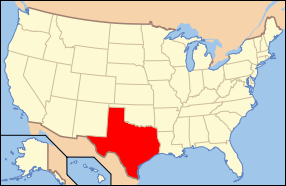Honolulu's new prosecutor, Keith Kaneshiro, will not push to create a human trafficking law in Hawaii. However, in an interview with Civil Beat he acknowledged it's a problem for the state.
Kaneshiro told Civil Beat that last year's attempt to create legislation was well intentioned, but misguided.
"I think the people in human trafficking are genuinely passionate about the problem and they thought this was a way to go and attack the problem," Kaneshiro said of a bill last year. "When the governor vetoed the bill, she had specific reasons to veto the bill. A lot of it was with the definition and also that there were existing laws that can cover the same conduct. So instead of looking at making a new law to cover the same conduct that exists in law, we'll just go and work with the existing law."
Human trafficking is the illegal trade of human beings for forced labor or sexual exploitation. Hawaii is one of five states without a law banning the practice.
Seven human trafficking bills have been introduced this session. Kaneshiro says many human trafficking cases are handled on the federal side of the law, but for the cases the feds can't cover, "we can always pick (them) up."
In the 2010 legislative session, a human trafficking bill that would have recognized some prostitutes as human trafficking victims was introduced and passed both chambers of the Hawaii Legislature unanimously.
However, on July 6, 2010, former Gov. Linda Lingle vetoed the bill, citing criticism it received from law enforcement, prosecutors and public defenders, who unanimously opposed it.
Kaneshiro believes current prostitution laws can handle the bulk of human trafficking cases on the sexual exploitation side. His plan is to strengthen the laws.
As part of his 2011 legislative package, the prosecutor is proposing tougher sentencing for prostitution offenders. He is also pushing to have the state recognize that when prostitutes are victims, government needs to give them adequate protection. Kaneshiro plans to include prostitutes in the witness protection program for the first time, "so they can get witness protection if they come and testify for the state and say that they were victimized."
His package calls to increase the penalties for prostitution by upgrading each degree of crime to the next level. For example, solicitors of prostitutes, or "johns," will no longer be tried under a misdemeanor offense if the ofender has two or more prior convictions. If Kaneshiro gets his way, "habitual johns" will face Class C felony charges, which can result in five years of jail time.
"There's two types of human trafficking. One is laborers and one is prostitutes," Kaneshiro told Civil Beat. "We're looking at the prostitution angle. One of the concerns with human trafficking that we need to address is that sometimes, the prostitutes are not the criminals, they're victims... Because they've been trafficked across state lines and they work and people profit from that."
Some critics say tougher prostitution laws aren't the answer to the exploitation of women. Instead, nonprofits like Harm Reduction Hawaii advocate for the decriminalization of prostitution. When Civil Beat asked Kaneshiro about this approach, he said it wouldn't solve the problem.
"There is some merit that you can regulate the health and the transmission of disease, make sure they get their health certificates and everything," Kaneshiro said. "A good example is go to Nevada. Not in Las Vegas, but outside of Las Vegas, you have legalized prostitution. But human trafficking is biggest in Nevada. They bring in the prostitutes from outside for sex slaves."
But Harm Reduction Hawaii's Executive Director Tracy Ryan disagrees with Kaneshiro's analyses.
"The only people that are saying that the high rates of human trafficking is occurring in Las Vegas are anti-trafficking advocacy groups who, in my opinion, have zero credibility whatsoever," Ryan told Civil Beat. She said increasing penalties for solicitors of prostitution would be counter productive.
"It makes things much worse than they are," Ryan said. "It's because the people who are selling sex are selling sex for a reason. And the reason is money. And they still need the money even if all of the sudden, there is no more business selling sex. So what do they do? What's the alternative? Generally, the alternative is to turn to other crime when most of those others crimes, such as theft and drug dealing, have worse effects on the community than prostitution does."
Ryan said an alternative she has offered in the past was legislation that would have set up areas for prostitution. But, she said, "the problem with setting up zoning is if you're going to have a tolerated zone, where's it going to be? You get into a NIMBY (not in my backyard) thing."
She says that there is no reason why Kaneshiro couldn't decriminalize off-street prostitution tomorrow. "Ninety percent of people who sell sex do not do it on the street... So why not decriminalize activities which are between adults and consensual and not complained about?"
Ryan does agree with Kaneshiro's take on adding a human trafficking law, however.
"We have a law for that already," Ryan said. "Promoting prostitution in the first degree is a perfectly adequate law. It doesn't need to increase penalties. It would be nice if there were more prosecutions, which is the problem."
Before Kaneshiro's special election victory, Civil Beat asked then-candidate Kaneshiro if he thought current law was enough to address human trafficking. He replied:
"No. Victims of human trafficking should be included in the statewide witness program that provides for services to these types of victims. In addition, the laws on prostitution need to be simplified to clearly establish the prohibited conduct of human trafficking. The penalties for those involved should also be increased."
Based on his answer, he seems to be holding true to his campaign rhetoric, at least for the most part. He is trying to add victims of trafficking to the witness protection program and is also increasing penalties. As far as simplifying the laws, however, Kaneshiro doesn't seem keen on tightening definitions.
In discussing the 2010 bill vetoed by Lingle, Kaneshiro said: "They were caught up terming the crime human trafficking. They were caught up on that. The problem you have with that is, once you use that term, you have to have a definition for that term and in defining that term, you're going to have all kind of problems. And it's going to be litigation in how you define, 'human trafficking'."
Honolulu Civil Beat - Honolulu Prosecutor Says Hawaii Doesn't Need A Human Trafficking Law - Article




















